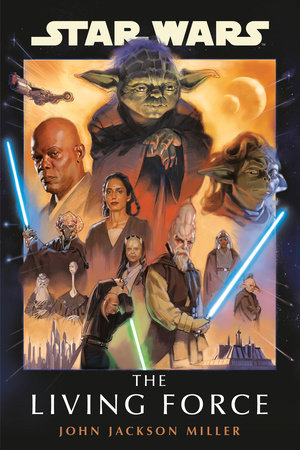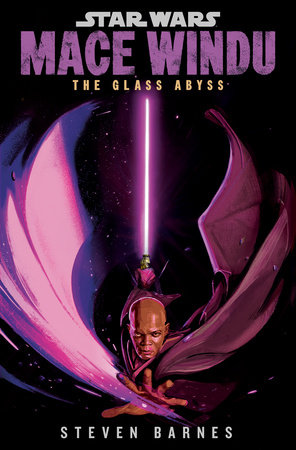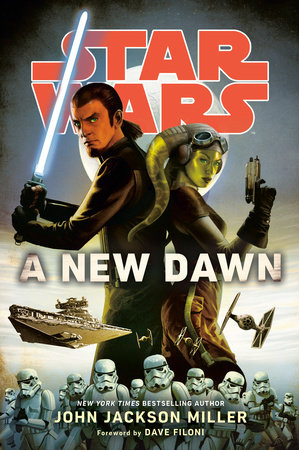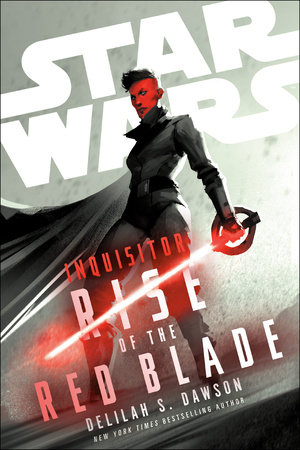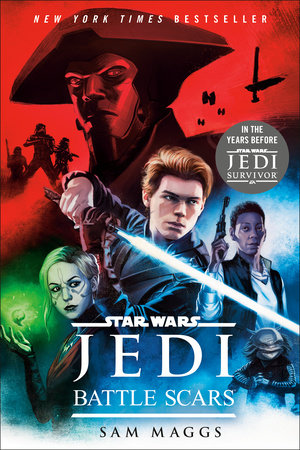Excerpt
Rogue One: A Star Wars Story
Galen Erso was not a good farmer. That was only one of his many flaws, but it was the reason he was still alive.
A man of more diverse talents—a different Galen, a Galen who could intuit what colonial crops would thrive in an alien world’s soil, or who could check a withered tree for rot without peeling away its bark—would have grown bored. His mind, left idle in the fields, would have returned to subjects he had forsworn. That Galen, consciously or by habit, would have sought out the very work that had driven him to exile. He would have stared into the hearts of stars and formulated theorems of cosmic significance.
In time, he would have
drawn attention. His obsessions would surely have killed him.
Yet an unskilled farmer was anything but idle; so the true Galen, the one who inhabited the realm of reality instead of idle fantasy, had no trouble filling his days on Lah’mu without succumbing to temptation. He took bacterial samples off boulders left by prehistoric volcanoes and looked in awe at the evergreen moss and grass and weeds that seemed to sprout from every surface. He surveyed the endless crooked hills of his domain, and he was grateful that he had yet to master his new profession.
He constructed these thoughts like an equation as he looked out the window, past his orderly rows of budding skycorn and toward the black soil of the beach. A tiny girl played near the rows, sending her toy soldier on adventures in the dirt.
“Is she digging again? I swear she didn’t learn the words
strip-mining from me, but we’re going hungry next year if she keeps this up.”
The words breached Galen’s concentration slowly. When he heard them, understood them, he smiled and shook his head. “The agricultural droids will repair the damage. Leave her be.”
“Oh, I never planned to do anything. That girl is all yours.”
Galen turned. Lyra’s lips curled until she smiled. She’d started smiling again the day they’d left Coruscant.
He began to reply when the sky rumbled with a boom unlike thunder. One portion of Galen’s mind narrowed its focus and was aware of only his wife before him, his daughter on the beach. The other portion processed the situation with mechanical precision. He was walking without conscious intent, striding past Lyra and the cluttered kitchen table and the worn couch that reeked of clove aftershave. He passed through a doorway and reached a device that might have evolved in the junkyard of a machine civilization—all cracked screens and loose wires, apt to shatter at a touch. He adjusted a dial and studied the video image on the screen.
A shuttlecraft was landing on his farm.
Specifically, a
Delta-class T-3c, all sharp angles and bare metal. It busily broadcast active scans of the landscape as its broad wings folded in for landing and its sublight engines tapered their thrust. Galen studied the associated readouts and let the specifications settle into his memory—not because they might be useful, but because he wanted to procrastinate for just a moment. To shut away the implications of what he was seeing.
He squeezed his eyes shut and gave himself
three seconds,
two, one. Then it was time to accept that his family’s life on Lah’mu was over.
“Lyra,” he said. He assumed she was near, but didn’t turn to look.
“Is it him?” she asked. She sounded unafraid, which frightened Galen more than anything.
“I don’t know. But we have to—”
“I’ll get started,” she said.
Galen nodded without looking from the console.
Galen was not prone to panic. He knew what needed doing, had rehearsed it on those rare days when the farm tended to itself or on those less rare nights when sleep eluded him. Such preparations were the only obsessions he permitted himself. He turned to another machine, tapped in a code, and tore a series of cords from the wall with swift jerks. He began another countdown in his head; if the data purge did not complete in five minutes, he would begin physically destroying components.
He heard footsteps at the front door, quick and light. He turned to see Jyn dash inside, brown hair matted and face touched with dirt. She’d left her toy in the fields. Galen felt an unexpected pang and feared—absurdly, he knew—that the loss of Stormy would distress her once she was far from the farm.
“Mama—”
Lyra stepped away from the bundle of clothes and datapads and portable meals she’d piled on one chair and knelt before the girl whose pale, slender features mirrored hers. “We know. It’s all right.”
Galen approached the pair, waited until his daughter had seen him. He spoke softly but somberly. “Gather your things, Jyn. It’s time.”
She understood, of course. She always did, when it mattered. But Galen had no time to be proud.
He turned back to his machines as Jyn sprinted to her room. The data purge had not completed. There were other files he had to handle as well, files he should have erased on Coruscant but which he’d brought to Lah’mu instead. (Why had he done that? Was it nostalgia? Misplaced pride?) He opened a drawer stuffed with spare droid parts and removed the arm of an agricultural unit. He flipped open a small panel, dug his fingertips between wires, and extracted a datachip.
“The scrambler, please?” he said.
Lyra passed him a metal orb the size of his palm. He inserted the datachip and—before he could doubt himself—pressed the toggle. The orb heated and produced a smell like burning hair. He tossed it in the junk drawer and felt a tightness in his stomach.
“If there’s anything else, make it quick.” Lyra’s tone was clipped. A light blinked faster on the sensor console.
“Set the rendezvous and take Jyn,” he said. “I’ll finish here.”
Lyra abruptly stopped double-checking her bundle of provisions. “That wasn’t the plan, Galen.”
“I’ll meet you there.”
“You have to come with us.”
Her eyes were hard.
Please smile, he thought.
“I have to buy you time,” he said.
The sensor light went dark. A fault seemed unlikely.
Lyra just watched him.
“Only I can,” he said.
It was an argument impossible to refute. Lyra didn’t try. She stalked into the kitchen and tapped at the comm unit as Galen made for Jyn’s room. He caught just a snippet of Lyra’s words:
“Saw—it’s happened. He’s come for us.” Jyn stood with her bulging satchel at her feet. Galen surveyed the tiny chamber’s remaining contents: a few toys, the cot. Easy enough to hide. Enough to buy a few more minutes. He pushed a doll out of sight before returning to the doorway.
“Jyn. Come here.”
He considered what he might say; considered what impression he wanted to leave Jyn if everything ended in disaster.
“Remember—” He spoke with deliberate care, hoping to etch the words in her bones. “Whatever I do, I do it to protect you. Say you understand.”
“I understand,” Jyn said.
And this time, of course, she
didn’t understand. What eight-year-old could? Galen heard his own foolishness, his ego echoed by her voice. He wrapped her in his arms, felt her slender, warm body against him, and knew a better memory to leave her with.
“I love you, Stardust.”
“I love you, too, Papa.”
That would be enough.
He looked to his wife, who stood waiting. “Galen,” she began, all the harshness gone.
“Go,” he said.
She did, coaxing Jyn with her. Galen allowed himself the luxury of watching, heard his daughter offer a last confused, “Papa?” Then they were gone from the house, and he resumed his work.
He collected objects out of place—more toys, Lyra’s clothes, unwashed dishes from the kitchen—and stashed them in niches he and Lyra had prepared long ago. He checked the unfinished data purge, returned his mind’s eye to his mental countdown. A few seconds past the five-minute deadline. That meant he could keep busy while he awaited his visitors.
By the time Galen heard muffled voices approaching the farmhouse, two of his homemade data processing units billowed acrid smoke as their circuits melted. He stepped out the front door to greet the new arrivals under the cloudy sky.





